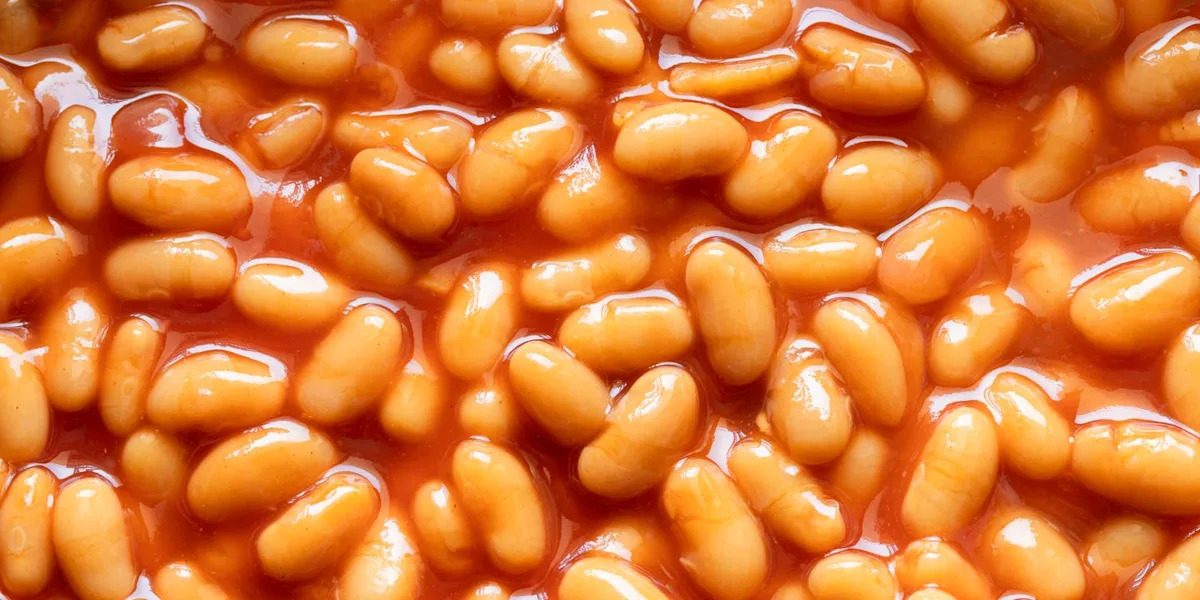Whether you like them best steaming on slices of buttery toast or spilling out of an overstuffed jacket, baked beans are an unquestionable staple of British cuisine. Low-effort, low-cost and always reliable, the humble tinned legumes remain a go-to easy meal solution for the hurried, hungover and generally hungry, but convenience isn’t all they bring to the table. Baked beans are nutritional powerhouses.
High in plant-based protein and fibre, the ingredient makes for a great addition to your diet whether your focus is speedy and efficient recovery post-strength training, or you simply want to support your digestive health.
‘Haricot beans – the types used in baked beans – naturally contain fermentable fibres like galactooligosaccharides (GOS) and resistant starches – types of fermentable fibre that act as ‘food’ for your gut microbiome,’ explains registered dietitian and BDA media spokesperson Dr Sammie Gill. The beans also provide a variety of important vitamins and minerals, including B vitamins, iron, zinc, potassium, and magnesium. Plus, they’re low in total fat and saturated fat.
‘Adding baked beans to your breakfast is a cheap, easy, and convenient way to support your gut health and overall health,’ says Dr Gill. ‘For example, pairing half a tin of baked beans (8g) with two slices of wholegrain toast (5g) equates to almost half of your daily 30g fibre needs.’
What Are the Macros in a Serving of Baked Beans?
A half tin of baked beans (200g) provides approximately:
4 Surprising Benefits of Baked Beans1. They’re Ideal for a Nutritious Post-Workout Meal
With their balance of protein and carbs, baked beans make excellent fuel for recovery following a workout. Plus, they’re quick and easy to prepare.
‘Combine baked beans with other foods to maximise the nutritional benefit,’ says Dr Gill. She recommends serving alongside an additional source of protein, such as eggs, and veggies to increase diet diversity. Or, using baked beans as a base for pasta sauces for extra fibre.
Shakshuka is her favourite way to eat baked beans post-workout, however: ‘Sauté onions, garlic, and peppers, then stir in tinned tomatoes and baked beans. Crack in one or two eggs, sprinkle over some grated cheddar or crumbled feta, and finish with a drizzle of olive oil and fresh herbs such as coriander or parsley.’
2. Baked Beans Could Help to Lower Cholesterol
Baked beans are high in soluble fibre, which helps to reduce the absorption of cholesterol into the bloodstream. ‘One study showed that eating half a tin of canned beans every day for four weeks reduced total and LDL ‘bad’ cholesterol in adults with elevated LDL cholesterol levels,’ says Dr Gill.
3. Baked Beans Support Gut Health
The high fibre content in baked beans also helps to support gut health. Resistant starch, a type of fibre that resists digestion in the small intestine and ferments in the large intestine, feeds the good bacteria in the gut, improving bowel regularity and general gut function.
It’s worth noting, however, that some brands of baked beans may be high in sugar and salt which, when consumed in high quantities, can both disrupt the balance of gut bacteria.
Typically, a half-tin serving of baked beans has around 1g of salt. UK guidelines recommend that adults consume no more than 6g of salt per day. ‘The nutrients in baked beans, like fibre, protein, vitamins and minerals, outweigh the sugar and salt content,’ Dr Gill reassures. If you’re concerned, though, she recommends opting for reduced-sugar and reduced-salt varieties or experimenting with making your own.
4. They May Even Improve Your Life Expectancy
‘Eating more legumes offers some of the biggest health gains,’ says Dr Gill. ‘They’re rich in plant chemicals called polyphenols – a large group of compounds with health-protective properties found naturally in plant-based foods.’
Otherwise known as antioxidants, polyphenols are said to have anti-inflammatory effects, and have been associated with lower risk of cardiovascular, metabolic and neurodegenerative diseases. ‘One study suggested that eating more legumes, whole grains and nuts can add around 2.5 years to life expectancy,’ Dr Gill adds.
You Might Also Like
